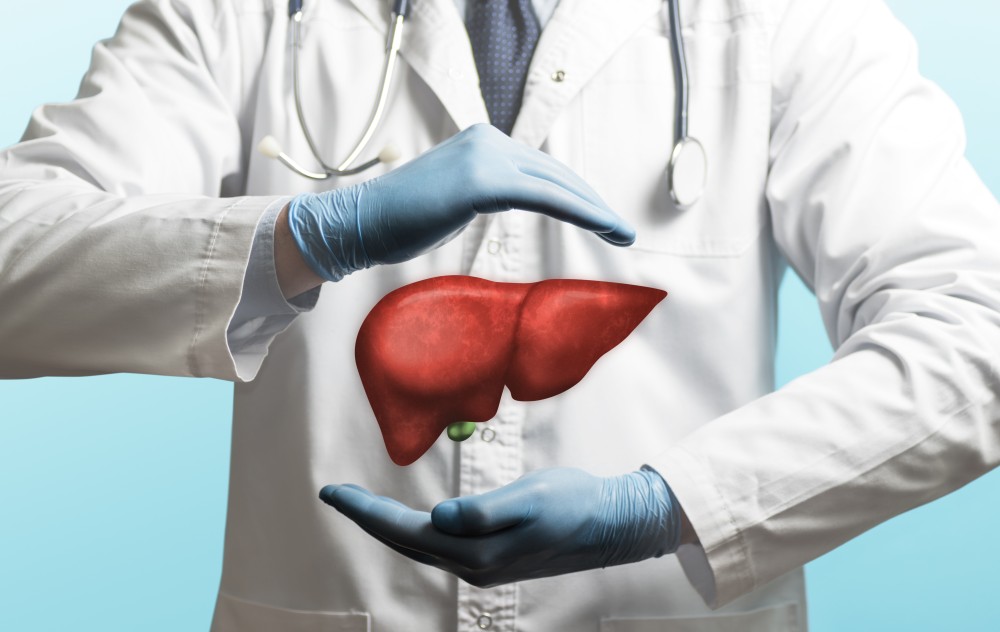Anything that increases one’s chance of developing liver cancer is considered a risk factor for the disease.
Although risk factors increase the likelihood of developing liver cancer, it is also possible that someone with multiple risk factors may never develop liver cancer. The converse is also true whereby someone who harbors no risk factor may develop liver cancer. Therefore, it is important to be aware of the most important risk factors for liver cancer.
What Factors Increase the Risk for Liver Cancer?
Some risk factors, such as smoking, can be altered and minimized, whereas others including age and family history cannot. For example, in the United States, liver cancer is more common in men, Asian Americans, and people over the age of 60. The most important risk factors for liver cancer include:
- Hepatitis B virus (HBV) infection: Blood, sperm, and other bodily fluids can all carry the HBV virus. The virus may be transferred from mother to child during childbirth, through sexual contact, or by sharing needles. This may result in liver inflammation (swelling), which can lead to cancer.
- Hepatitis C virus (HCV) infection: HCV can be transmitted in the blood, and the infection can be spread by sharing needles or through sexual contact. In the past, it was also commonly spread during blood transfusions or organ transplants. The danger of contracting the virus from blood transfusions has significantly decreased, however, because blood banks now screen all donated blood for HCV. Chronic HCV infection can cause cirrhosis that may lead to liver cancer.
- Cirrhosis: It is a condition in which healthy liver tissue is replaced by scar or fibrotic tissue, The liver cannot function properly because of the scar tissue, which is a major problem as the liver is the chemical factory of the body fulfilling many roles in the processing of nutrients. Cirrhosis is frequently brought on by persistent hepatitis infections and excessive drinking. Those who have cirrhosis brought on by HCV are more likely to develop liver cancer than those who have cirrhosis brought on by HBV or alcohol use. In the vast majority of cases, liver cancer occurs in the background of cirrhosis making the management of liver cancer patients even more difficult.
- Heavy alcohol use: Heavy alcohol use can lead to cirrhosis, which increases the chance of developing liver cancer by a significant factor (10 times more likely than those heavy drinkers without cirrhosis).
- Aflatoxin B1: Ingesting foods that contain aflatoxin B1 (poison from a fungus that can grow on foods that have been stored in hot, humid places) may raise the risk of developing liver cancer. Such aflatoxin inhalation is most prevalent in China, Southeast Asia, and sub-Saharan Africa.
- Nonalcoholic steatohepatitis (NASH): This chronic inflammation of the liver is due to fatty liver and is related to obesity. The resulting cirrhosis may again lead to liver cancer.
- Cigarette smoking: Heavy cigarette smoking has been linked to an increased risk of developing liver cancer. The risk increases with the number of cigarettes smoked per day and the amount of time the person has been smoking for.
- Other conditions: Certain rare medical and genetic conditions may increase the risk of liver cancer. These conditions may include hereditary hemochromatosis, alpha-1 antitrypsin deficiency, glycogen storage disease, porphyria cutanea tarda, and Wilson disease.
Liver Cancer Prevention
It is possible to lower the risk of developing liver cancer by reducing or eliminating exposure to known risk factors. This may include taking the following preventive measures.
- Prevent and treat hepatitis B and C infections: By getting vaccinated against hepatitis B, it is possible to eliminate the risk of infection. Anyone can receive the vaccination, including infants, older adults, and those with compromised immune systems. Although no vaccine is yet available for hepatitis C, the infection is now curable with various drug regimens. Taking such medication eliminates the risk of developing liver cancer.
- Limit alcohol and tobacco use: If you choose to drink alcohol, keep the intake to a minimum. This means no more than one drink each day for women, and no more than two drinks each day for men.
- Maintain a healthy lifestyle: By maintaining a healthy lifestyle, including frequent exercise, maintaining a healthy weight, and eating a nutritious diet especially low in carbohydrates and sugar, it is possible to reduce the risk of developing liver cancer.
- Treat diseases that increase liver cancer risk: Certain genetic diseases can cause cirrhosis of the liver, increasing a person’s risk of developing liver cancer. Identifying and treating these diseases early in life could lower this risk. For instance, if hemochromatosis runs in your family, you should be screened for the disease and treated if you have it.
- Screen for liver cancer: People with conditions that increase the risk of liver cancer, such as hepatitis B, hepatitis C, and liver cirrhosis, might consider screening. No matter your condition or health status, it is important to speak with your doctor about whether liver cancer screening is right for you.
Minimally Invasive Liver Cancer Treatments in New York
Although there is no proven way to completely prevent liver cancer, you may be able to lower your risk. If you have any of the above risk factors for liver cancer, consult with your physician about receiving screenings and taking other preventative measures.
At USA Oncology Centers, we are committed to providing effective liver cancer treatments that have been proven to reduce painful symptoms, increase life expectancy, and improve quality of life. Our minimally-invasive liver cancer treatments in New York include the following:
At USA Oncology Centers, our patients always come first. To learn more about our treatment options, call us at 855.870.4747 or schedule an appointment with an interventional oncologist today.
Medically Reviewed by Jeff Geschwind, M.D., Director of Oncology, USA Clinics Group

